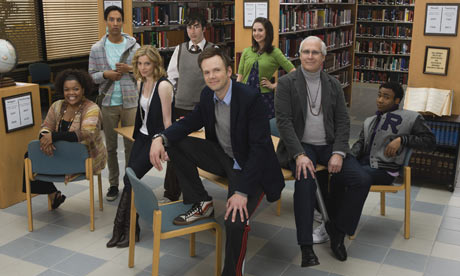
Here's a link to one of my Big Bang Theory scripts:
http://www.scribd.com/doc/34835248/Big-Bang-Theory-Finding-Leonard-Nimoy
I have to say that I wrote a complete synopsis of this episode and thought about posting it here. But then I read it again and had to conclude that reading a synopsis is like watching paint dry.
The thing is that a script isn't about what it's about but how it's about it. So I thought that posting the synopsis would serve no purpose because it wouldn't answer the question of "how it's about".
You have to read the full script if you want to both know and feel it. (what and how)
Anyway, some brief observations about my two premises that were:
1) Sheldon wants to get Leonard Nimoy to give the guys a lecture.
2) Howard and Raj fight for the same girl.
In hindsight one should see that the first one had its own set of potential pitfalls. It was doubtful that you could actually get Leonard Nimoy to guest star in the episode in question. Another problem was that episodes with stars playing themselves usually aren't good.
Therefore, a relatively safe solution to this problem was that we wouldn't get to see Nimoy (not Sheldon and not anyone else either)
But this created another problem. If the plot hinted too much that we were going to see Nimoy and that in the end it wouldn't happen, the audience would have been very disappointed and would have felt cheated.
So even though the episode was going to be about Leonard Nimoy, at the same time it couldn't be about him. It had to be about something else that the audience would find more interesting than Sheldon meeting Spock.
I hope that my "Sheldon with kids" is a twist that the audience would appreciate...
When it came to the other storyline, it had to be as simple and straightforward as possible. So what it meant was that the storylines had to be well integrated. The whole second act happens at their university and only two sets are used - the university hallway and the lunchroom.
Hopefully I managed to fix most of the problems that I had while writing the script. For example, the first draft had the girl also in the second act but I changed it, so that instead of Howard meeting the girl, he only tells about the meeting.
Other than that, there's a lot of stuff going on in the script. Maybe even too much and it's hard to tell whether the first act works. But at the very least I did my best to have the episode based on character and truth. And I think I made (or kept) the characters likable too.









